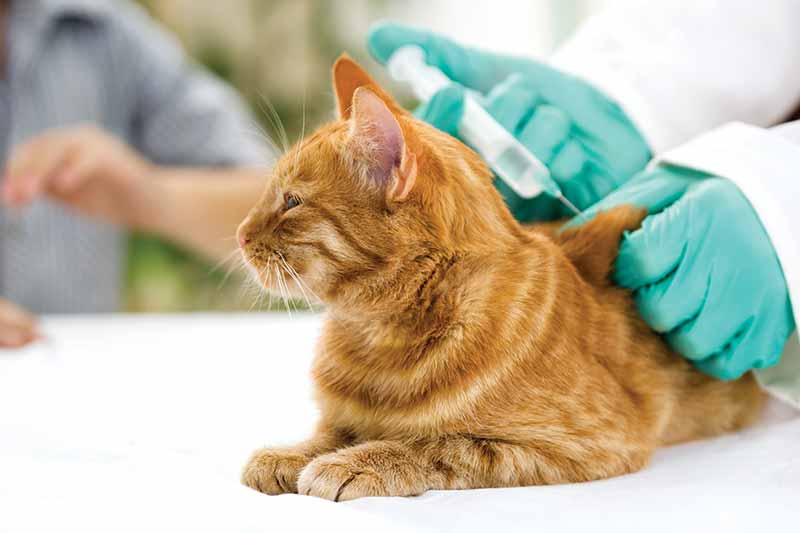The Importance of Annual Pet Vaccines
 Annual pet vaccines are important because they protect your pets from dangerous and contagious diseases.
Annual pet vaccines are important because they protect your pets from dangerous and contagious diseases.
Knowing which vaccines your pet needs, however, as well as why and when, isn’t always something that’s widely understood by pet owners.
Understanding Vaccines
Vaccines help the body’s immune system prepare to fight disease-causing organisms. They contain antigens that resemble the disease-causing organism but don’t cause illness. When the vaccine enters the body, it mildly stimulates the immune system. If a pet is later exposed to the actual disease, their immune system is ready to recognize and either fight it off completely or lessen the severity of the illness.
Core Vaccines
Core pet vaccines are essential vaccinations that protect pets from serious and highly contagious diseases. They’re recommended for almost all pets, regardless of their lifestyle or risk of disease.
Core Vaccines for Dogs
The following core vaccines are recommended for all puppies and dogs:
- Rabies
- Distemper
- Parvovirus
- Leptospirosis
- Canine Adenovirus Type 2 (CAV-2)
Non-core Vaccines for Dogs
Non-core vaccines are those that are not required, but are recommended or required only for certain purposes. Boarding, grooming or obedience training are good examples. We may recommend additional vaccinations based on your pet’s lifestyle and environment, as well as where your pet travels.
Non-core Vaccines for Dog include:
- Bordetella
- Lyme disease
- Rattlesnake
Core Vaccines for Cats
Core vaccines for kittens and adult cats, as recommended by the Feline Veterinary Medical Association (FelineVMA), currently include the following:
- Rabies
- Panleukopenia virus
- FeLV (Feline leukemia virus)
- FHV-1 (Feline viral rhinotracheitis, also known as herpes virus type 1)
- Feline caliciviruses
Non-core Vaccines for Cats
Non-core (optional vaccines), as recommended by the FelineVMA for cats with a risk of exposure to specific diseases, include:
- Chlamydophila felis (causes feline chlamydiosis)
- Bordetella bronchiseptica (causes feline bordetellosis)
- Feline leukemia virus (FeLV) in adult cats
Timing and Frequency of Vaccinations
Many vaccines can (and should) be administered as early as 6 weeks of age. Puppies receive boosters every 3 to 4 weeks until 16 weeks of age, which is the point when there is no longer any maternal antibody interference from the mother.
Adult Dogs
Some veterinarians administer certain vaccines annually to adult dogs, while they give other vaccines every three years or longer.
Adult Cats
Veterinarians may revaccinate adult cats annually or every three years.
Local Laws on Mandatory Vaccines
Each state has its own laws regarding the administration of the rabies vaccine. Some areas require annual rabies vaccinations, while others mandate them every three years. In Colorado, proof of rabies vaccination is mandatory.
Scheduling An Appointment With Our App
If you haven’t already downloaded the Lone Tree Vet App, now is the perfect time! Our free app gives you access to your pet’s vaccination information, request appointments, and provides reminders for parasite protection, upcoming appointments, and much more.
For more information about pet vaccinations, please don’t hesitate to contact the team at Lone Tree Veterinary Medical Center. We’re always here for you and your pet!



